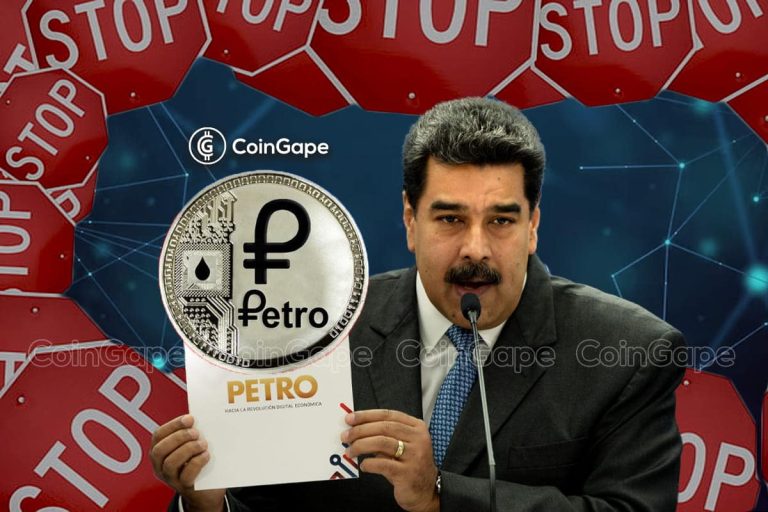The government of Venezuela has decided to bring down the curtain on its cryptocurrency Petro (PTR). The project was started six years ago by President Nicolas Maduro to address US sanctions. However, cryptocurrencies are set to be banned from Venezuela on Monday, January 15.
Venezuela encourages the conversion of petro into bolivar
The decision to discontinue Petero comes in the wake of the project failing to gain traction and being embroiled in an epic scandal. All cryptocurrency wallets hosted on Patria, the sole trading platform for Petro, are set to be deactivated on Monday. The announcement on the platform's website indicates that all of Petro's holdings will be converted into bolivars, Venezuela's local currency.
Additionally, CryptoLand Venezuela, a private cryptocurrency trading platform, confirmed the end of the Petro on social media last week. “PTR is officially dead,” he wrote. The latest development comes in the wake of the corruption scandal that unfolded last year.
It has exposed irregularities in the management of funds from oil operations involving crypto assets. The repercussions led to the resignation of Petroleum Minister Tarek El Aissami. Furthermore, several officials were arrested, including senior management at cryptocurrency regulator Sunacrip.
The repercussions extended beyond Petro, leading to a crackdown on Bitcoin (BTC) mining operations in Venezuela. It sent shock waves through the country as bitcoin served as a popular hedge against hyperinflation and the depreciation of the bolivar.
Read Also: India: Reappointment of RBI Deputy Governor May Maintain Status Quo for Cryptocurrency Policy
Why did the Venezuelan government put an end to the PTR?
Petro was launched in February 2018 at $60 per unit, and was promoted as a financial solution backed by Venezuela's vast oil reserves. Moreover, President Maduro's vision is to use Petro to ease the economic pressure imposed by US sanctions. In addition, it pledged to be a vehicle for a new approach to international finance.
However, despite the ambitious design of the project, citizens faced challenges in understanding and using cryptocurrency. Hence, some risk rating bodies have described it as a “scam”. Moreover, efforts to enhance its usefulness in 2020 were insufficient. Authorizing Petro to pay for fuel by airlines departing from Caracas and government services such as obtaining a new passport proved insufficient.
In addition, Petro's primary application remained limited to specific government operations, including tax payments. While traffic fines can be issued in Petro currency without a possible way to settle them in cryptocurrency.
Subsequently, the collapse of the Petro was further signaled by the government directing banks to advance their balances in both bolivars and petros. On the Patria platform, used mainly for government subsidies, users were only allowed to exchange petro for bolivar via the auction system.
Read Also: South Korea Restricts Bitcoin ETF Trading Abroad Amid Regulatory Issues

